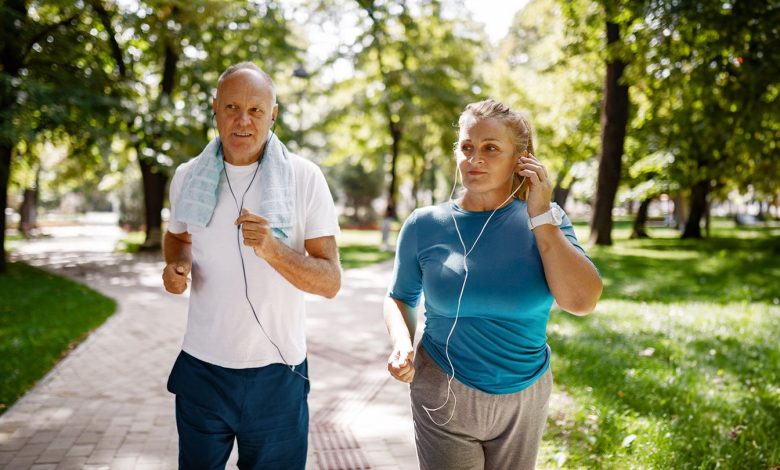Women Gain More Years of Life From Exercising Less Than Men

[ad_1]
A new study shows, however, that gains from such exercise may vary significantly between the sexes — with women getting more benefit with less time spent.
“While even a small amount of exercise can make a health difference for both men and women, it turns out it’s not a one-size-fits-all situation,” says the senior study author, Susan Cheng, MD, the director of the Institute for Research on Healthy Aging in the department of cardiology at the Smidt Heart Institute with Cedars-Sinai Medical Center in Los Angeles. “The research highlights that women gain more years of life for less amount of work.”
RELATED: 8 Ways to Sit Less and Move More Each Day
Dr. Cheng and her collaborators noted that women have persistently lagged behind men when it comes to engaging in physical activity. They write that it’s a “gender gap that begins early in childhood and continues throughout adulthood.” Cheng and her team hope that the results will incentivize women to get more exercise.
Men Need to Put in More Time Working Out to Get Equal Results
Overall, more male participants (43 percent) than female (32.5 percent) responded that they engaged in regular aerobic activity, and all major measures of exercise were “significantly more frequent” in men.
Researchers compared physical activity (such as frequency, duration, intensity, and type of exercise) with the risk of death by any cause and from specific cardiovascular causes. During a follow-up period of more than two decades between 1997 and 2019, nearly 40,000 deaths were recorded, including 11,670 related to heart disease.
In addition to the overall drop in death risk, physical activity appeared to have a similar benefit in relation to deaths due to heart attack, stroke, or other heart disease reasons. In these cases, regular exercise was linked with a 14 percent risk reduction in men — compared with a 36 percent risk reduction in women.
Men reached their maximum survival benefit at five hours per week of moderate to vigorous physical activity, such as brisk walking or cycling, while women reached a similar benefit in about half that time (2 hours, 20 minutes).
Cheng highlighted that women who pushed beyond two and a half hours per week of moderate to vigorous aerobic activity had even greater gains. At 300 minutes per week (five hours), the likelihood of premature death plateaued for both genders, but women still maintained a greater death-risk reduction.
When it came to muscle-strengthening activities, results were similar. Men reached their peak benefit from doing three sessions per week, and women gained the same amount of benefit from doing about one session per week.
Gender as a Consideration for Physical Activity Guidelines
The cardiologist Nieca Goldberg, MD, the medical director of the center for women’s health at NYU Langone Medical Center in New York City, praised the study for recognizing that amounts of exercise have distinct effects depending on sex.
“Men and women have physiologic differences when it comes to exercise, but most of our exercise guidelines and protocols are based on the exercise response of men,” says Dr. Goldberg, who is a spokesperson for the American Heart Association and was not involved in this research. “Previous studies have identified the lifesaving benefit of physical activity, but we need to recognize that men and women are different, and use protocols and practices that are appropriate for the individual that we are caring for.”
Cheng suggests that study results such as these could lead to changes in national exercise guidelines that reflect these sex differences.
While the study involved a large data set, findings were limited in that they were based on self-reported information, not researcher-recorded observations from clinical trials. The paper stressed that results show an association — not proof — that women will benefit more from similar amounts of exercise. Cheng noted that the investigation did not analyze the average age of death among the different study groups.
“We hope this study will help everyone, especially women, understand they are poised to gain tremendous benefits from exercise,” says Dr. Cheng. “It is an incredibly powerful way to live healthier and longer. Women on average tend to exercise less than men, and hopefully these findings inspire more women to add extra movement to their lives.”
[ad_2]




